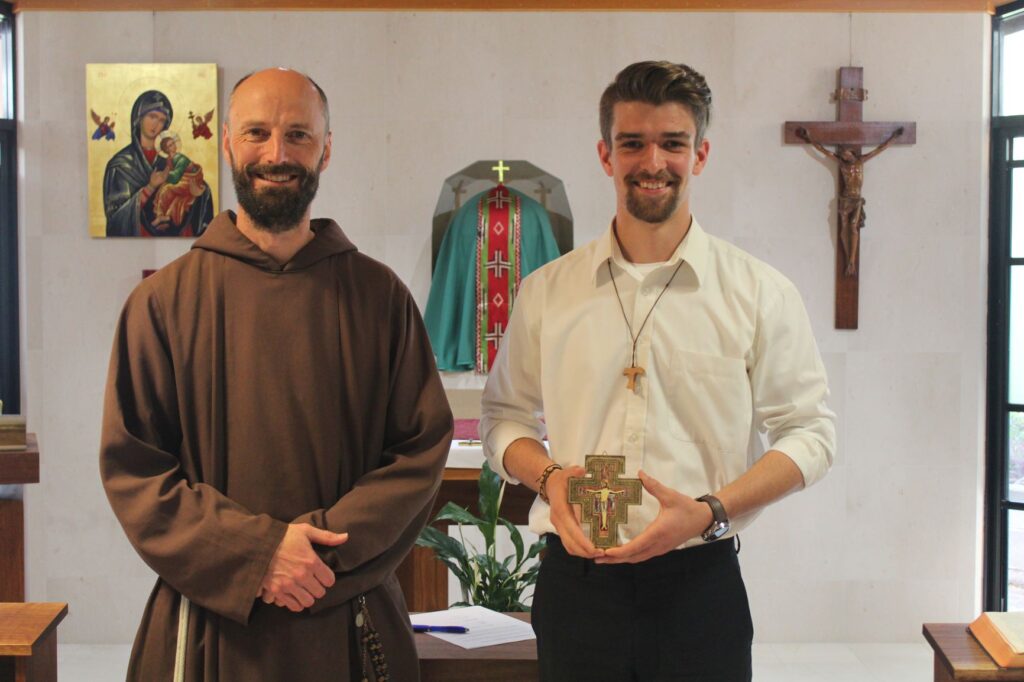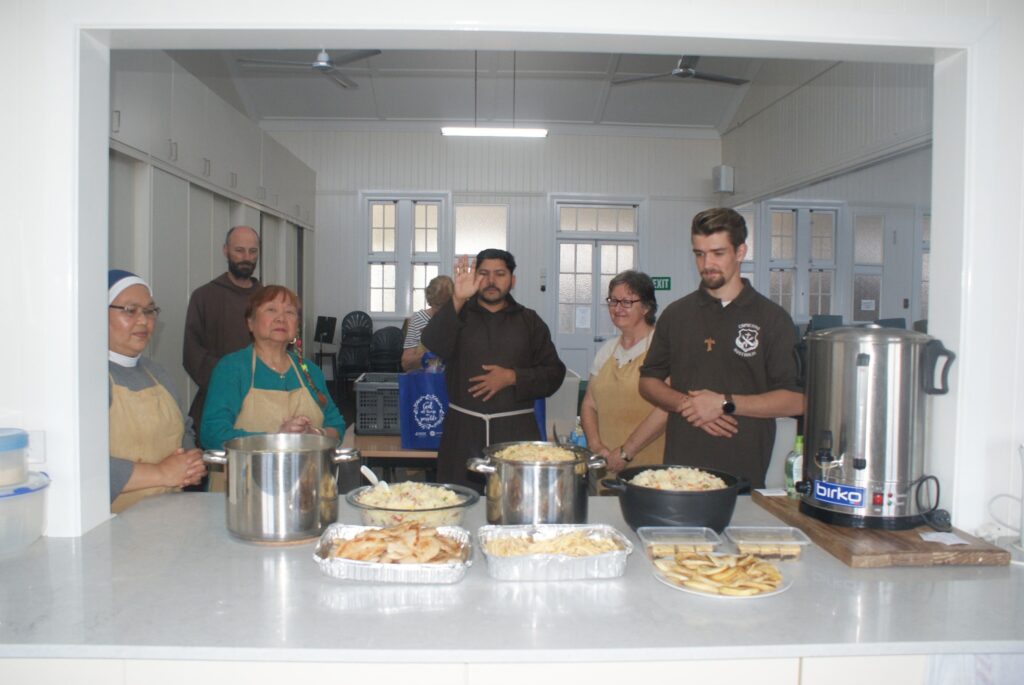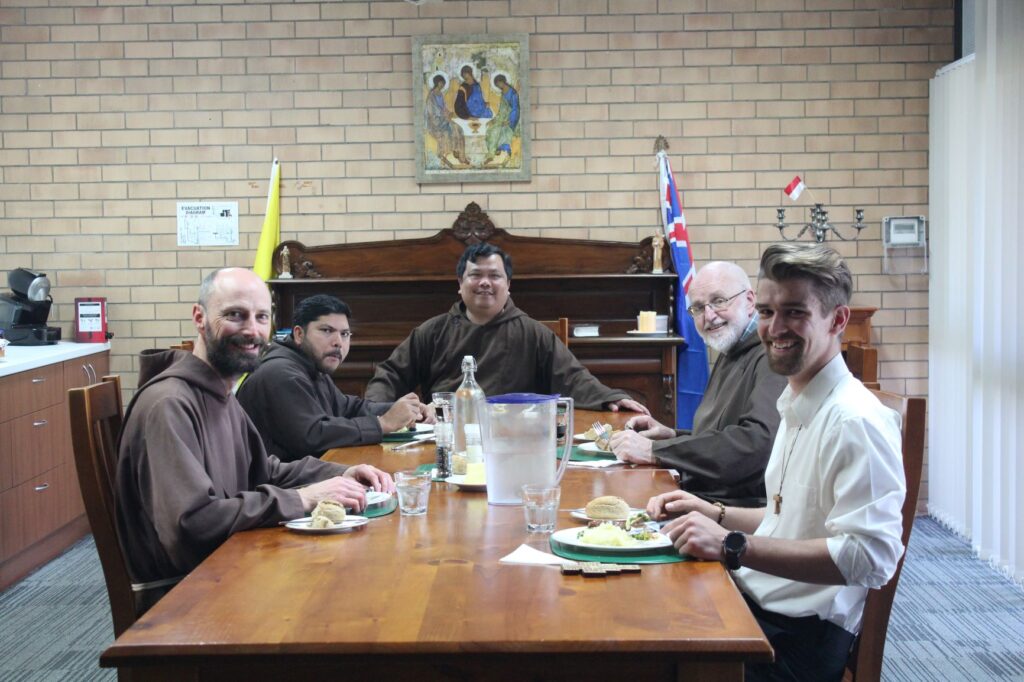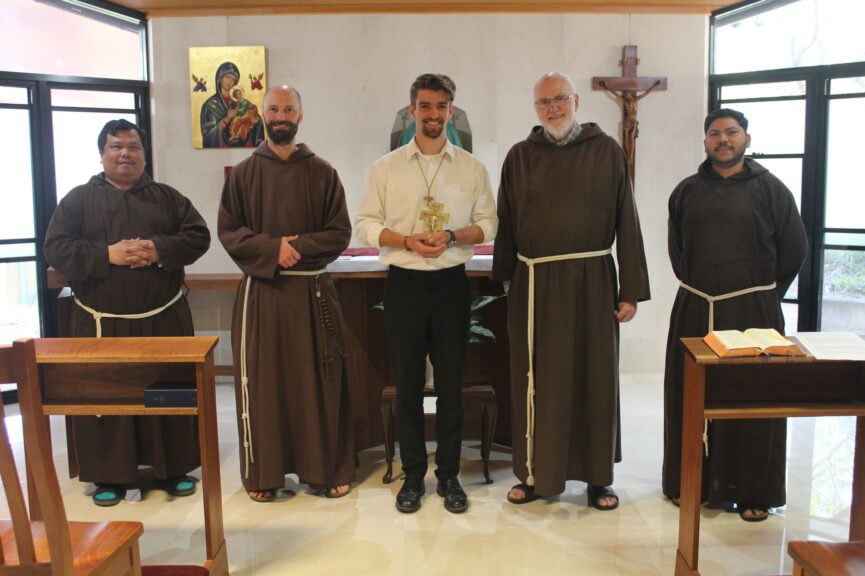“What really captured me was the genuine care the friars show to everyone they meet and the way in which they strive to be an authentic witness to Christ.”
These are the words of young Isaac who began his postulancy with the Order of Capuchin Friars Minor on 1st September 2020. The Postulancy program is a period of about a year in which the postulant becomes more familiar with our Capuchin way of life and makes a further and more careful discernment of his vocation.

It is one thing to be inspired – from the outside of something – and another thing to immerse one’s self into it in a deeper way. While Isaac is not yet a member of the Order, his choice in responding to God’s call – in responding to what he saw as a captivating and striving “authentic witness to Christ” – is his way to move from being inspired to acting on that inspiration. As a genuine care for others entails more than just an ideal of good will, Isaac has entered into the postulancy to learn how to be genuine in this particular way of life.
Postulancy is a time of discernment. While Isaac’s experiences in the postulancy inform him more deeply of God’s call, these same experiences also shape him as part of his formation as one who seeks to respond to God’s call in the manner of St Francis of Assisi and, in particular, of the Capuchin Friars who value a life rooted in prayer but also in a strong expression of fraternity and outreach.

Isaac is not alone in this discernment. While he strives to listen to God, the friars themselves are also discerning Isaac’s suitability to be a prospective friar. Under the guidance of professed friars, Isaac learns by lived examples what a Capuchin is and these same friars come to know Isaac and how the gift of the Capuchin charism may be realised in him.

It can be a challenging process, and it is meant to be. For just as no one who puts their hand to the plough and looks back is fit for the kingdom of heaven, no one who joins such a way of life half-heartedly can say that they are striving to also be an authentic witness to Christ. In this day and age where young men are conditioned to be individualistic, free from cares of others, and taught to do only what makes them happy, the formation experience of postulancy – and indeed further stages of formation in religious life – can seem unattractive or even irrelevant to many. However, any professed friar will tell you that if it were not for the challenges that made them stop and think things through in a different perspective – the challenges that initially made them doubt or turned their world upside down – then they would not have found themselves and who they are called to be.
Postulancy is Isaac’s way of asking the Lord to challenge him; not to bring him to despair or to escape from the world, but to ask the Lord to challenge him in order to find within himself what God can do with him in the world.

